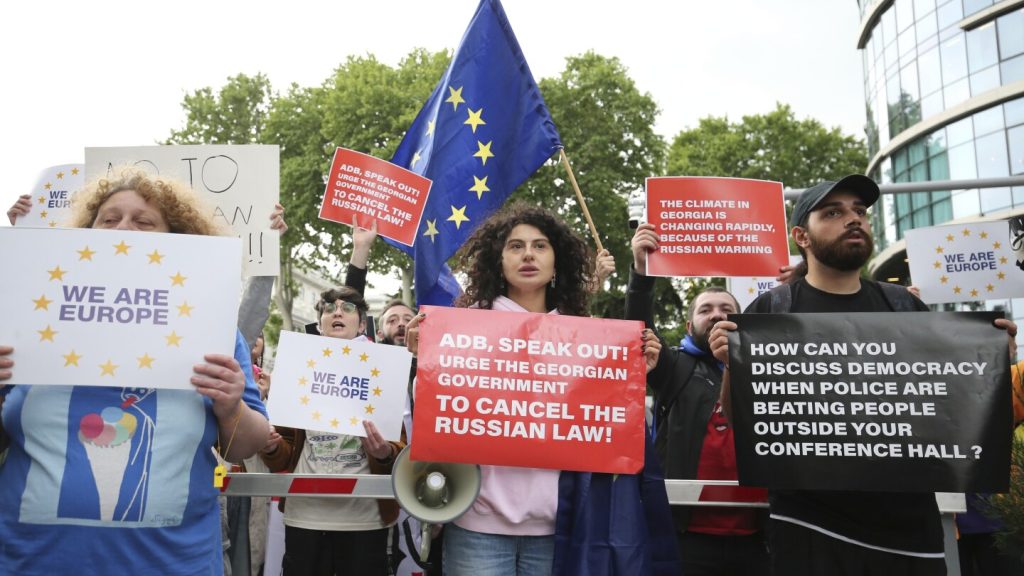The proposed bill in Georgia that would require media, NGOs, and nonprofits to register as “pursuing the interests of a foreign power” if they receive more than 20% of their funding from abroad has sparked daily protests in the country. Several thousand Georgians marked Orthodox Easter with a candlelight vigil outside Parliament as part of the ongoing demonstrations against the legislation, which critics see as a threat to media freedom and the country’s aspirations to join the European Union. Protesters and the opposition view the bill as similar to a Russian law used to stigmatize independent journalists critical of the Kremlin.
The atmosphere at the vigil outside Parliament was peaceful, unlike the mass rallies earlier in the week that were met with a heavy police response. Unarmed police officers received festive foods from the protesters, showcasing a sense of solidarity among the demonstrators. Despite the Easter celebrations, activists and protesters remained focused on the main issue at hand, the proposed legislation. The bill has already been approved in a second reading, with the final reading expected later this month.
The Georgian Dream party, which introduced the bill, argues that it is necessary to prevent harmful foreign influence on the country’s political scene and to safeguard against destabilization efforts by unidentified foreign actors. However, the move has been widely criticized, with EU foreign policy chief Josep Borrell describing it as a “very concerning development” that could impact Georgia’s progress on its EU path. The opposition United National Movement accuses Georgian Dream of serving Moscow’s interests, given that the party’s founder, Bidzina Ivanishvili, has ties to Russia. The issue of the country’s strained relations with Russia adds complexity to the political landscape in Georgia.
Georgia’s relations with Russia have been turbulent since the collapse of the Soviet Union, and the two countries fought a brief war in 2008 that resulted in Georgia losing control over two separatist regions. Tbilisi severed diplomatic ties with Moscow in the aftermath, and the status of the regions remains a contentious issue. Despite some improvements in relations, the issue continues to be a key irritant. The ongoing protests against the proposed legislation highlight the deep concerns among Georgians about protecting media freedom and ensuring the country’s democratic aspirations. The outcome of the bill’s final reading will have significant implications for Georgia’s future relationship with the EU and its broader geopolitical landscape.















